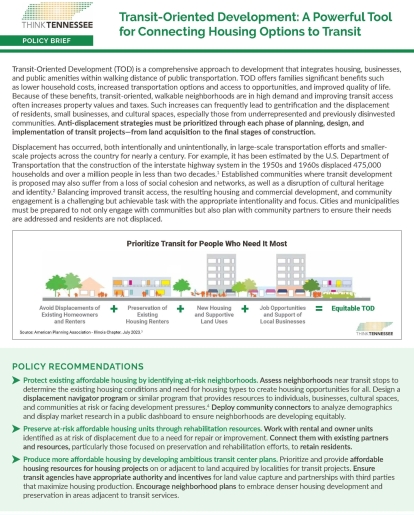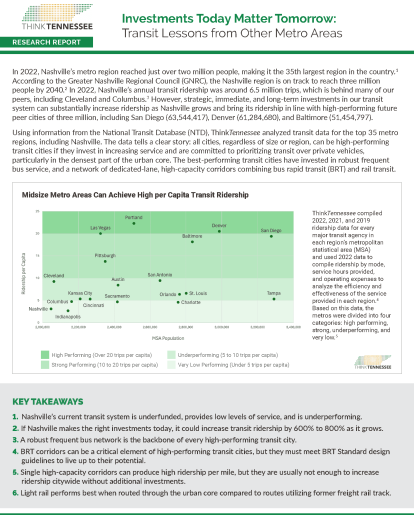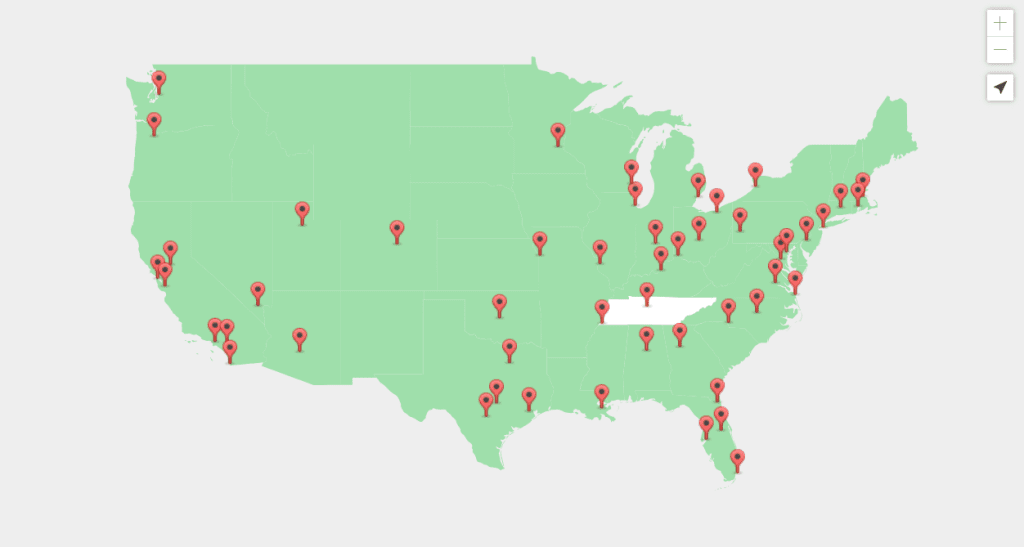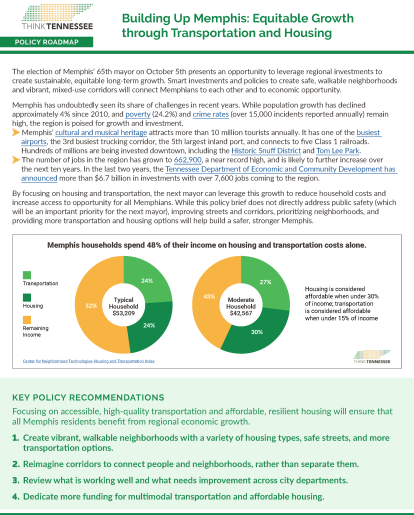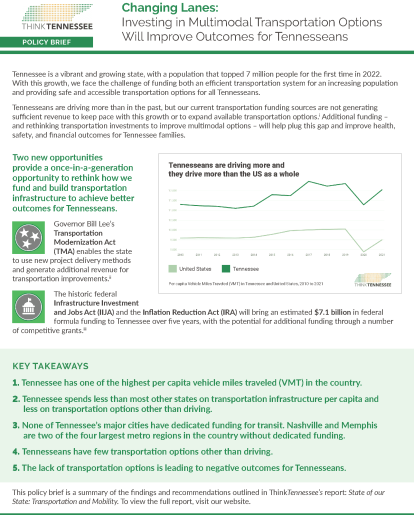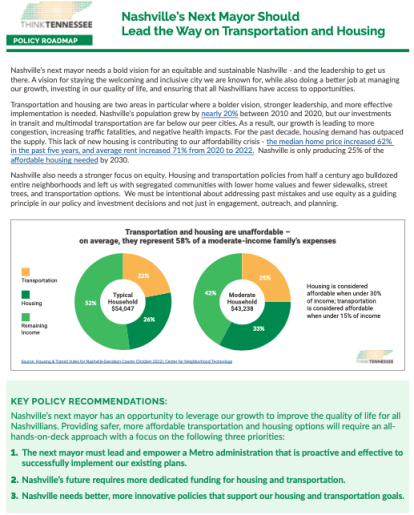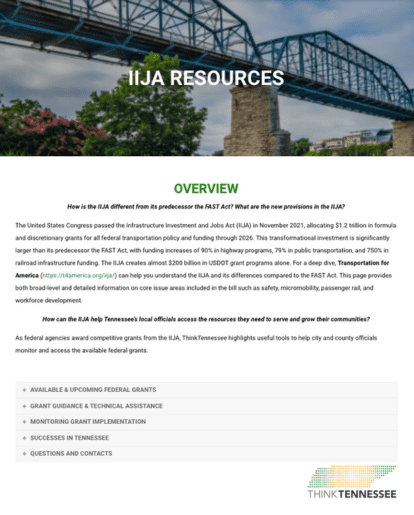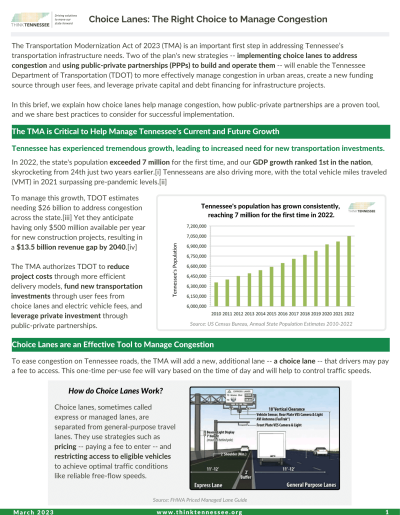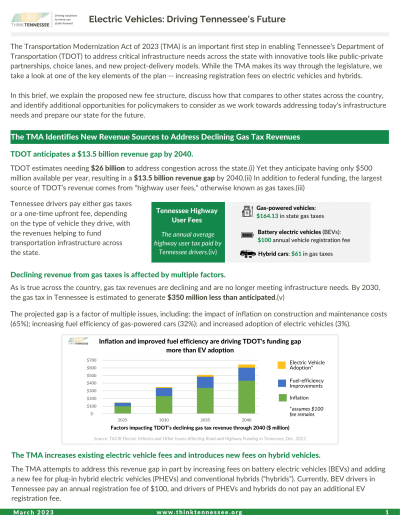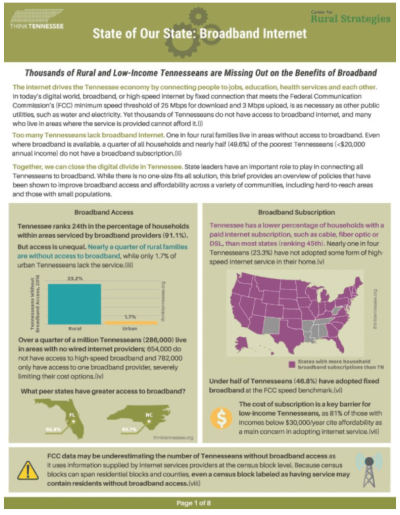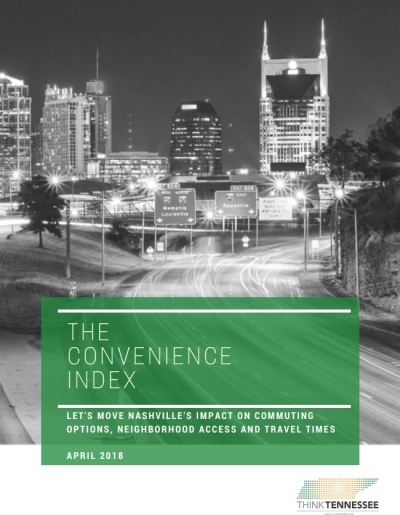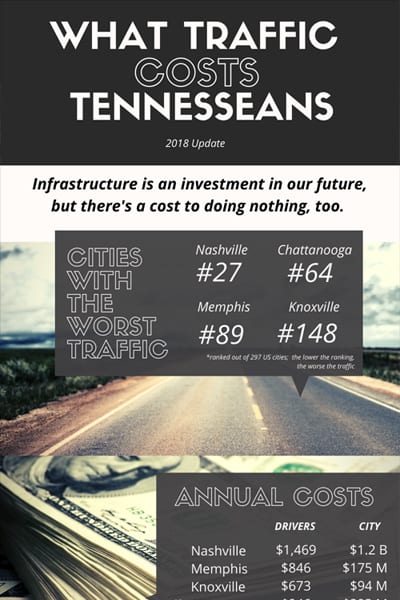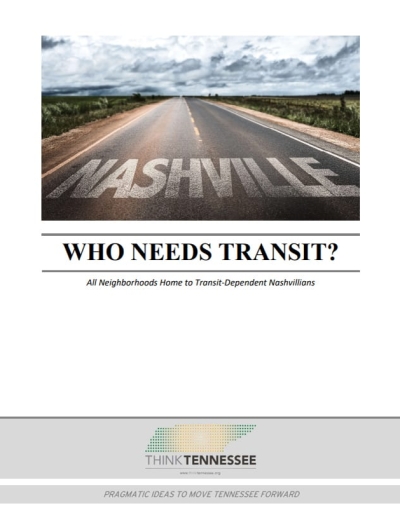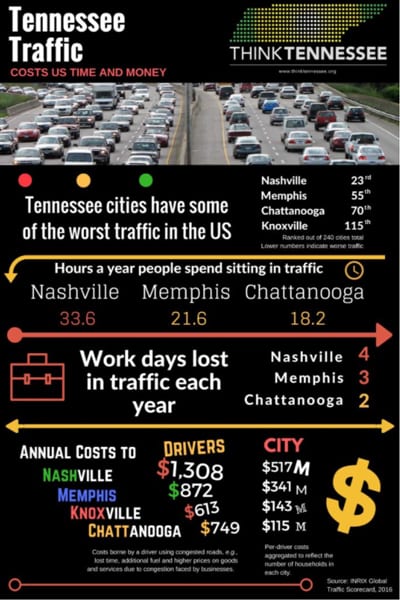Infrastructure
TRANSIT-ORIENTED DEVELOPMENT: A POWERFUL TOOL FOR CONNECTING HOUSING OPTIONS TO TRANSIT (2025)
By strategically placing housing, businesses, public facilities, and amenities within walking distance of public transportation, transit-oriented development (TOD) creates walkable, “complete” mixed-use neighborhoods that optimize land use. Research shows that TOD offers families significant benefits, such as increased transportation and housing options, leading to an improved quality of life and economic mobility. However, because of these benefits, transit-oriented, walkable neighborhoods are in high demand. As a result, improving transit access often increases property values and taxes. Both factors can lead to gentrification and displacement, particularly in previously disinvested communities.
Our brief includes three policy recommendations to protect, preserve, and produce housing options in impacted communities. The report also details examples of anti-displacement strategies and provides several case studies from across the country.
Investments Today Matter Tomorrow: Transit Lessons from Other Metro Areas (2024)
Using information from the National Transit Database (NTD), ThinkTennessee analyzed transit data for the largest 35 metro regions, including Nashville. The data tells a clear story: all cities, regardless of size or region, can be high-performing transit cities if they invest in increasing service and are committed to prioritizing transit over private vehicles, particularly in the densest part of the urban core. The best-performing transit cities have invested in robust frequent bus service, and a network of dedicated-lane, high-capacity corridors combining bus rapid transit (BRT) and rail transit.
Our research report shows that Nashville’s current transit system is underfunded, provides low levels of service, and is underperforming; however, it also reveals promising insights from comparable cities that could help inform the design of the proposed transit plan. Read the full report by clicking the image to the right. Data tables can be viewed here.
Dedicated Local Transit Funding in the U.S. (2023)
Dedicated funding from local government is essential to a community’s ability to construct, operate, and maintain reliable, high-quality public transportation services. In Tennessee, however, no local government agency has adopted a dedicated funding source for transit.
In this resource examining dedicated transit revenue across the 50 largest metropolitan areas, we find that 46 of the 50 metro areas have secured some form of dedicated funding. Of the four major metro areas lacking dedicated funding, two are in Tennessee: Nashville and Memphis. Most major U.S. cities rely on some form of sales tax to fund transit, which can generate an average of $394 million in annual revenue. This resource includes an interactive map to explore how cities fund their transit and a downloadable dataset to further examine the context behind the diverse funding structures of transit agencies.
Building Up Memphis: Equitable Growth through Transportation and Housing (2023)
The election of Memphis’ 65th mayor presents an opportunity to leverage regional investments to create sustainable, equitable long-term growth. Smart investments and policies to create safe, walkable neighborhoods and vibrant, mixed-use corridors will connect Memphians to each other and to economic opportunity.
This policy roadmap provides four recommendations to ensure that all Memphis residents benefit from regional economic growth: 1) Create vibrant, walkable neighborhoods with a variety of housing types, safe streets, and more transportation options; 2) Reimagine corridors to connect people and neighborhoods, rather than separate them; 3) Review what is working well and what needs improvement across city departments; and 4) Dedicate more funding for multimodal transportation and affordable housing.
Changing Lanes: Investing in Multimodal Transportation Options Will Improve Outcomes for Tennesseans (2023)
Tennesseans are driving more than ever, but the state’s current transportation funding sources are not generating sufficient revenue to keep pace with this growth or to expand available transportation options.
Despite having one of the highest per capita vehicle miles traveled (VMT) in the country, Tennessee spends fewer state and local dollars on transportation infrastructure than most other states. Tennessee also contributes fewer dollars to its transit agencies than other states, and none of its major cities have adopted dedicated funding for transit. Additional funding — particularly investment in multimodal transportation choices beyond driving — is needed to bridge this gap and improve health, safety, and financial security for Tennessee families.
Our Changing Lanes policy brief provides a summary of our key findings and recommendations. For more detail, please see our complete State of Our State: Transportation and Mobility report.
Nashville’s Next Mayor Should Lead the Way on Transportation and Housing (2023)
Nashville’s next mayor has an opportunity to leverage our growth to improve the quality of life for all Nashvillians. Providing safer, more affordable transportation and housing options will require an all-hands-on-deck approach.
This policy roadmap provides three recommendations rooted in data and best practices to help Nashville’s mayor accomplish three priorities: 1) Lead and empower a proactive and effective Metro administration; 2) Secure more dedicated funding for housing and transportation; and 3) Institute innovative policies to meet our housing and transportation goals.
INFRASTRUCTURE AND INVESTMENT JOBS ACT (IIJA) RESOURCE GUIDE (2023)
The United States Congress passed the Infrastructure Investment and Jobs Act (IIJA) in November 2021, allocating $1.2 trillion in formula and discretionary grants for all federal transportation policy and funding through 2026.
As federal agencies award competitive grants from the IIJA, ThinkTennessee highlights useful tools to help city and county officials in Tennessee monitor and access the available federal grants.
CHOICE LANES: THE RIGHT CHOICE TO MANAGE CONGESTION (2023)
The Transportation Modernization Act (TMA) of 2023 identifies choice lanes as a policy solution to manage traffic congestion in urban areas. These new lanes that drivers would pay to access would be built and operated through public-private partnerships, which would utilize private capital and debt financing as funding sources for infrastructure improvements across the state.
In this brief, we share how implementing choice lanes will advance the infrastructure investments needed to support Tennessee’s growing population.
ELECTRIC VEHICLES: DRIVING TENNESSEE’S FUTURE (2023)
The Transportation Modernization Act (TMA) of 2023 is an important initial step in enabling Tennessee’s Department of Transportation (TDOT) to effectively address the state’s critical infrastructure needs.
A key element of the act includes increasing registration fees on electric vehicles and hybrids to help address TDOT’s existing funding gap. The proposed registration fees would be among the highest in the country, which could make electric vehicle (EV) adoption less accessible to many of Tennessee’s working families.
In this brief, we outline the TMA’s new fee structure and share additional alternative approaches to addressing TDOT’s revenue gap without hindering EV demand.
STATE OF OUR STATE: BROADBAND INTERNET (2018)
One in four rural Tennessee families live in areas without access to broadband. Even where broadband is available, a quarter of all households and nearly half of the poorest Tennesseans do not have a broadband subscription.
Developed in partnership with the Center for Rural Strategies, our policy brief addresses Tennessee’s challenges in increasing broadband internet access and affordability, particularly for rural and low-income families. The brief also highlights solutions other states have implemented to improve broadband deployment and affordability, providing a menu of options for how our state government can play a role in further incentivizing broadband build-out by providers and alleviating affordability barriers for customers, while also meeting the diverse needs of our under-served communities. (2018)
THE CONVENIENCE INDEX (2018)
Conducted in partnership with Cambridge Systematics, this report examines the impact of Nashville’s proposed transit plan, Let’s Move Nashville, on commuting options, neighborhood access, and travel times.
WHAT TRAFFIC COSTS TENNESSEANS (2018)
Traffic congestion in Tennessee’s four largest cities ranks in the worst half of the nation and costs Tennesseans more than $1.7 billion annually.
In this brief, we use 2018 data from the INRIX Global Traffic Scorecard and find that Nashville drivers spend nearly a full work week (33 hours) sitting in traffic and lose an average of $1,469 each year to congestion-related costs—an increase of $161 compared to last year. Chattanooga traffic also got more expensive, with drivers now forfeiting nearly three workdays (21 hours) and nearly $950 to congestion delays.
Who Needs Transit? (2018)
An analysis of U.S. Census data and quality-of-life information reveals two important conclusions: (1) High rates of potentially transit-dependent residents are interspersed throughout Nashville; and (2) Improved transit access benefits these residents in a wide variety of ways.
TENNESSEE TRAFFIC: COSTS US TIME AND MONEY (2017)
Traffic congestion in Tennessee’s four largest cities ranks in the worst half of the nation and costs Tennessee more than $1.1 billion annually.
In this brief, we examined 2017 data from the INRIX Global Traffic Scorecard and found that Nashville drivers spend nearly a full work week (33.6 hours) sitting in traffic and lose an average of $1,308 each year to traffic-related costs. In Memphis, drivers lose almost 22 hours and $872. Traffic costs Chattanooga drivers more than 18 hours and $749.

